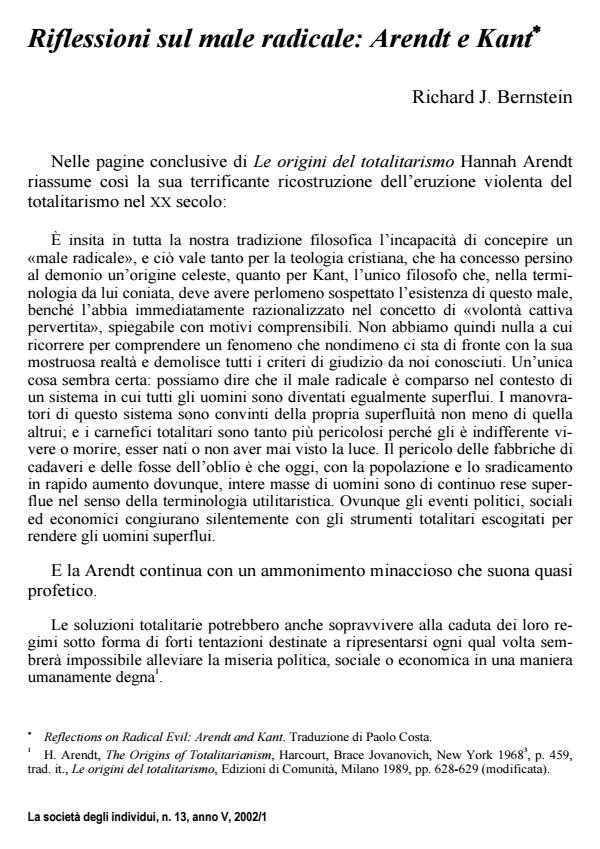Riflessioni sul male radicale: Arendt e Kant
Journal title SOCIETÀ DEGLI INDIVIDUI (LA)
Author/s Richard J. Bernstein
Publishing Year 2003 Issue 2002/13
Language Italian Pages 13 P. File size 84 KB
DOI
DOI is like a bar code for intellectual property: to have more infomation
click here
Below, you can see the article first page
If you want to buy this article in PDF format, you can do it, following the instructions to buy download credits

FrancoAngeli is member of Publishers International Linking Association, Inc (PILA), a not-for-profit association which run the CrossRef service enabling links to and from online scholarly content.
According to Arendt, the concept of 'radical evil' has nothing to do with selfishness or what Kant calls "self-love"; furthermore, it has nothing to do with humanly comprehensible sinful motives. Radically evil is the attempt to make human beings as human beings superfluous, to destroy what makes them human. According to Kant, on the contrary, 'radical evil' is paradoxically both an innate propensity in man and something that results from an "exercise of freedom". What we learn from this paradox is that human beings are ultimately solely accountable for the maxims that they adopt and the actions they perform. There can be no escape from personal responsibility for the radical evil of destroying human natality and spontaneity
Richard J. Bernstein, Riflessioni sul male radicale: Arendt e Kant in "SOCIETÀ DEGLI INDIVIDUI (LA)" 13/2002, pp , DOI: